Related Research Articles
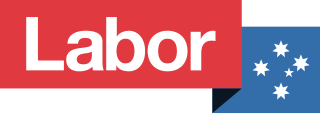
The Australian Labor Party (ALP), also known simply as Labor or the Labor Party, is the major centre-left political party in Australia and one of two major parties in Australian politics, along with the centre-right Liberal Party of Australia. The party has been in government since the 2022 federal election, and with political branches active in all the Australian states and territories, they currently hold government in New South Wales, Queensland, South Australia, Victoria, Western Australia, and the Australian Capital Territory. As of 2024, Tasmania and Northern Territory are the only state or territory where Labor currently forms the opposition. It is the oldest continuous political party in Australian history, having been established on 8 May 1901 at Parliament House, Melbourne; the meeting place of the first Federal Parliament.
The electoral system of Australia comprises the laws and processes used for the election of members of the Australian Parliament and is governed primarily by the Commonwealth Electoral Act 1918. The system presently has a number of distinctive features including compulsory enrolment; compulsory voting; majority-preferential instant-runoff voting in single-member seats to elect the lower house, the House of Representatives; and the use of the single transferable vote proportional representation system to elect the upper house, the Senate.
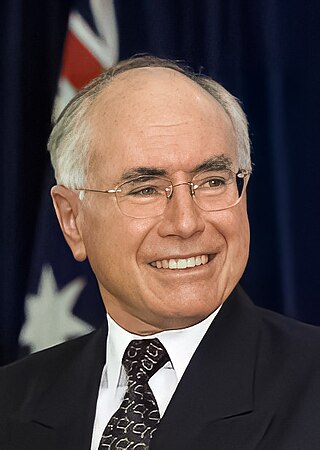
The 2001 Australian federal election was held in Australia on 10 November 2001. All 150 seats in the House of Representatives and 40 seats in the 76-member Senate were up for election. The incumbent Liberal Party of Australia led by Prime Minister of Australia John Howard and coalition partner the National Party of Australia led by John Anderson defeated the opposition Australian Labor Party led by Kim Beazley. As of 2024, this was the most recent election to feature a rematch of both major party leaders. Future Opposition Leader Peter Dutton entered parliament at this election.

The Nuclear Disarmament Party (NDP) was an Australian political party formed in June 1984. It was founded by medical researcher Michael Denborough as the political arm of the Australian anti-nuclear movement, which had been active since the early 1970s.

The Australian Electoral Commission (AEC) is the independent statutory authority and agency of the Australian Government responsible for the management of federal Australian elections, by-elections and referendums.
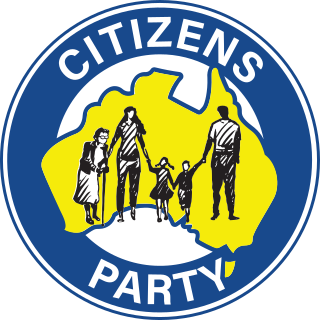
The Australian Citizens Party (ACP), formerly the Citizens Electoral Council of Australia (CEC), is a minor political party in Australia affiliated with the international LaRouche Movement which was led by American political activist and conspiracy theorist Lyndon LaRouche.
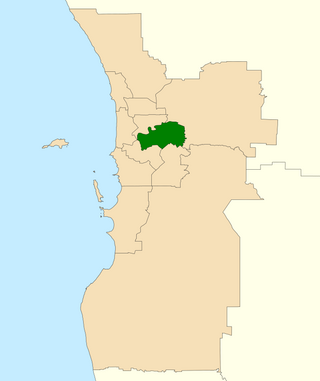
The Division of Swan is an Australian electoral division located in Western Australia.
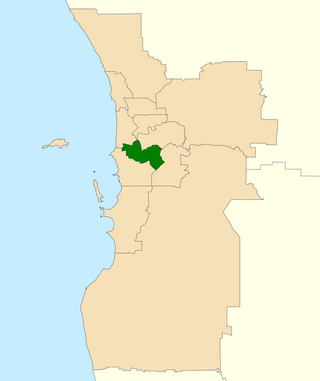
The Division of Tangney is an Australian electoral division in the state of Western Australia. The Division was named after Dame Dorothy Tangney, the first female member of the Australian Senate.

The Greens (WA) is a member party of the Australian Greens in Western Australia. The Greens (WA) was formed following the merger of the Western Australian Green Party with the Green Earth Alliance composed of the Vallentine Peace Group and Alternative Coalition in 1990. The Party became officially affiliated with the Australian Greens in 2003.

The Libertarian Party (LP), formerly known as the Liberal Democratic Party (LDP), is an Australian political party founded in Canberra in 2001. The party espouses smaller government and supports policies that are based on classical liberal, libertarian principles, such as lower taxes, opposing restrictions on civil liberties, decentralisation, uranium mining, and the relaxation of smoking laws.

The Commonwealth Electoral Act 1918 is an Act of the Australian Parliament which continues to be the core legislation governing the conduct of elections in Australia, having been amended on numerous occasions since 1918. The Act was introduced by the Nationalist Party of Billy Hughes, the main purpose of which was to replace first-past-the-post voting with instant-runoff voting for the House of Representatives and the Senate. The Labor Party opposed the introduction of preferential voting. The Act has been amended on several occasions since.

In Australian politics, the two-party-preferred vote is the result of an election or opinion poll after preferences have been distributed to the highest two candidates, who in some cases can be independents. For the purposes of TPP, the Liberal/National Coalition is usually considered a single party, with Labor being the other major party. Typically the TPP is expressed as the percentages of votes attracted by each of the two major parties, e.g. "Coalition 50%, Labor 50%", where the values include both primary votes and preferences. The TPP is an indicator of how much swing has been attained/is required to change the result, taking into consideration preferences, which may have a significant effect on the result.

The 1974 Australian federal election was held in Australia on 18 May 1974. All 127 seats in the House of Representatives and all 60 seats in the Senate were up for election, due to a double dissolution. The incumbent Labor Party led by Prime Minister Gough Whitlam defeated the opposition Liberal–Country coalition led by Billy Snedden. This marked the first time that a Labor leader won two consecutive elections.

The 2010 Australian federal election was held on Saturday, 21 August 2010 to elect members of the 43rd Parliament of Australia. The incumbent centre-left Australian Labor Party led by Prime Minister Julia Gillard won a second term against the opposition centre-right Liberal Party of Australia led by Opposition Leader Tony Abbott and Coalition partner the National Party of Australia, led by Warren Truss, after Labor formed a minority government with the support of three independent MPs and one Australian Greens MP.
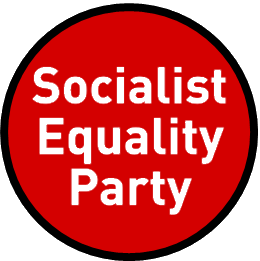
The Socialist Equality Party (SEP) is an unregistered Trotskyist political party in Australia. The SEP was established in 2010 as the successor party to the Socialist Labour League, which was founded in 1972 as the Australian section of the International Committee of the Fourth International (ICFI).

Adrian Frank Bennett was an Australian politician. He was a member of the House of Representatives from 1969 to 1975, holding the Western Australian seat of Swan for the Australian Labor Party (ALP). In later life he was associated with the LaRouche movement and helped establish the Curtin Labor Alliance.

Cannabis political parties are generally single-issue parties that exist to oppose the laws against cannabis.

A by-election for the Australian House of Representatives seat of Griffith occurred on Saturday 8 February 2014. Terri Butler retained the seat for Labor with a 51.8 (−1.2) percent two-party vote against Liberal National Party candidate Bill Glasson.
On 5 April 2014, an Australian Senate special election in Western Australia was held. The special election was held six months after the 2013 Australian federal election. The result of that 2013 election for the Australian Senate in Western Australia was voided on 20 February 2014 by the High Court of Australia, sitting as the Court of Disputed Returns, because 1,375 ballot papers were lost during an official recount in November 2013. The High Court ruled that because the number of lost ballots exceeded the margin for the two remaining Senate seats, the only acceptable remedy was to void the results and hold a special election.

CountryMinded was an Australian political party formed in 2014 that claimed to represent the interests of regional Australians whose livelihoods depend either directly or indirectly on agricultural production. The party was founded by a group of people looking for accountable regional representation, including two brothers from New South Wales, David and Peter Mailler as the Country Party of Australia, and changed its name to CountryMinded in September 2015. In 2018, the party merged with the Australian Democrats.
References
- 1 2 Douglas, Allen (12 May 2000). "New Leadership for a Time of Crisis: Australia's Curtin Labor Alliance" (PDF). Executive Intelligence Review . Vol. 27, no. 19. pp. 47–50. Retrieved 18 April 2024.
- ↑ "The Terminal Phase of the Bankrupt System: What Nations Must Do Now" (PDF). Executive Intelligence Review. Vol. 27, no. 20. 19 May 2000.
- ↑ "Curtin Labor Alliance". Australian Electoral Commission. Retrieved 16 August 2024.
- 1 2 3 4 Orr, G.; Mercurio, B.; Williams, G. (2003). Realising Democracy: Electoral Law in Australia. Federation Press. p. 165. ISBN 9781862874817.
- ↑ Hutchison, Geoff (10 August 2001). "The Curtin Labor Alliance sparks outrage". The World Today. ABC News. Archived from the original on 8 November 2002.
- ↑ "New political party a racist front – warning". The Australian Jewish News. 24 August 2001.
- ↑ "Keeping the far right on the fringe". The Australian Jewish News. 31 August 2001.
- ↑ "Western Australian State Election 2001" (PDF). Election Papers Series. No. 2. Parliament of Western Australia. 2001.
- ↑ "2001 Western Australia division results". Australian Electoral Commission. Retrieved 8 June 2022.
